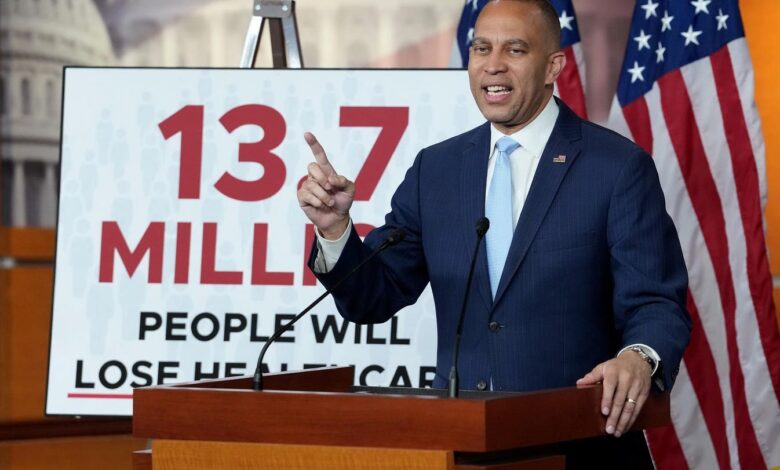CBO Says Budget Reconciliation Bill May Add 11 Million Uninsured

The House Republican budget reconciliation legislation, known as “the big, beautiful bill,” has sparked controversy and concern over its potential impact on healthcare and social safety net programs. According to the Congressional Budget Office, nearly 11 million people could lose health insurance over the next nine years if the bill is passed. This includes approximately 7.8 million individuals who may lose Medicaid coverage due to strict work requirements and eligibility checks, as well as millions more who could lose coverage through changes to the Affordable Care Act exchanges.
The budget bill proposes significant cuts to Medicaid and the Supplemental Nutrition Assistance Program, totaling $715 billion and $300 billion respectively. It includes work requirements for able-bodied childless adults, co-payments for those above the federal poverty level, and penalties for states providing healthcare coverage to certain immigrants. These measures are aimed at reducing government spending and rooting out “waste, fraud, and abuse” in the programs.
Critics of the bill, including House Minority Leader Hakeem Jeffries, argue that the proposed changes will lead to a significant increase in the number of uninsured individuals. Estimates range from 13.7 million to 15 million people losing coverage, with concerns raised about the impact on vulnerable populations and access to healthcare.
In addition to the cuts to Medicaid and SNAP, the bill also includes provisions that would impact the ACA marketplace. Changes such as expiring tax credits, shorter open enrollment windows, and increased paperwork requirements could make coverage more expensive and harder to obtain for individuals purchasing insurance through the exchanges.
The Senate must still pass the bill before it becomes law, and there is likely to be further debate and amendments to the legislation. Republican lawmakers defend the cuts as necessary for fiscal responsibility and argue that individuals losing Medicaid coverage could transition to employer-provided healthcare. However, concerns remain about the availability of employer-based insurance and the potential impact on healthcare access for millions of Americans.
Furthermore, the reconciliation package includes over $500 billion in automatic cuts to Medicare spending, affecting eligibility for certain populations and reducing payments to healthcare providers. The bill also introduces new regulations for pharmacy benefit managers in Medicare outpatient drug plans, aiming to increase transparency and potentially lower costs for beneficiaries.
Overall, the House Republican budget reconciliation bill has significant implications for healthcare and social welfare programs in the United States. The debate over the proposed cuts and changes will continue as lawmakers work to address concerns and find solutions that balance budgetary constraints with the needs of vulnerable populations.




